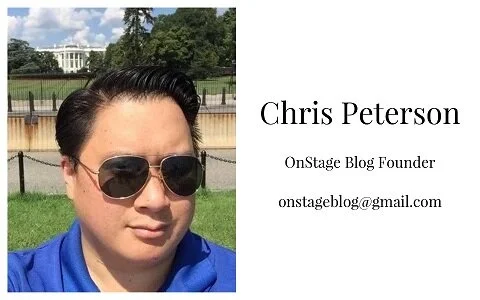It's Time for Licensing Companies to Include Race Casting Requirements for Roles of Color
Photo by Jenny Graham
Last month, the creators of Hairspray met and changed a statement included in their licensing materials regarding the casting of the show. The statement, originally intended to allow people from all over the world to perform the show, also created a loophole that gave way for all-white productions or gave directors and theatres the ability to cast non-black performers over black performers for roles such as Motormouth Maybelle and Seaweed.
The new policy closes that loophole. It includes the statement:
The authors have determined that expressly stating this requirement is an important component of ensuring that licensed productions of Hairspray accurately reflect the authors' intent.
That means going forward, this show must be cast the way the creators wrote it, with black performers playing black roles. I see this as a fantastic guarantee that black performers will always be able to play roles that were written for them to play.
Now it’s time to add that provision to all roles of color.
The same issue that plagued Hairspray in the past has also been an issue with other shows such as In The Heights, Miss Saigon, The King and I, Avenue Q, and Once on this Island. Too many times have I seen Asian or Latin roles portrayed by white performers or performers of color that these roles weren’t written for.
The reason for this is because a lot of community theatres or schools aren’t as diverse as they think, so they buy the licensing for these shows. When auditions come and not enough Asian or black performers show up, then these community theatres and schools look to either whitewash or cast the wrong performers of color in these roles.
Because of this, I’ve seen my fair share of white Christmas Eve’s and Usnavi’s to black King’s of Siam.
By closing these loopholes and having clear requirements on casting such roles in the licensing materials, it would force certain schools and local theatres to rethink whether or not they should take on these types of shows. It could also force many of them to become more open and aggressive when it comes to bringing more diverse performers into their circles.
By not having such requirements, then you’re allowing theatres to roll diversity dice which fails more than it succeeds. For schools and theatres that aren’t diverse, to begin with, they shouldn’t be trying to do these sorts of shows.
Now, there will be people who will disagree with such requirements. Others might argue if there are requirements for roles of color, does that mean there should be requirements for white roles?
That’s a fair question. While I can’t think of too many shows where the characters MUST be white, there are some. Famously, the works of Edward Albee have had issues where the author’s intent was to have certain characters always be played by white actors.
In those situations, while I may not agree, I would defer that if that’s the author’s intent, it should be followed.
But I don’t foresee this becoming an issue for roles perceived as “default white”. There is nothing that should stop a school or community theatre casting a black Airel or Latino Billy Flynn.
Given this heightened awareness and effort to diversify our stages, it’s important to ensure that roles that were written for certain BIPOC performers, should always be portrayed by those exact BIPOC.

